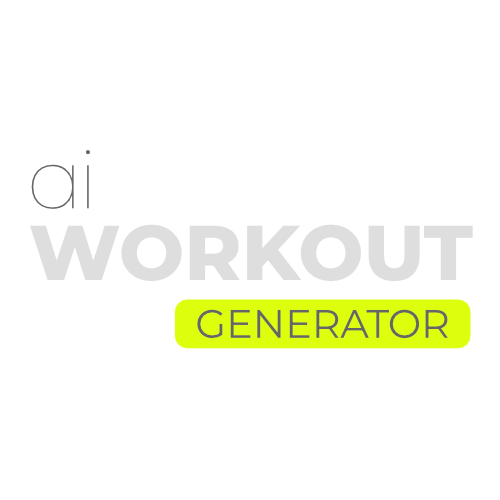AI-Generated Workouts: The Future of Personalized Fitness
Introduction
In the digital age, artificial intelligence (AI) has permeated nearly all sectors, revolutionizing the way we live, work, and play. One area where AI is making significant strides is in the realm of fitness. AI-generated workouts and personalized fitness programs are transforming the landscape of health and wellness, offering a unique blend of technology and physical activity that caters to individual needs and preferences. Platforms like aiWORKOUT Generator are leading this revolution, combining the power of AI with the expertise of ACSM-certified personal trainers.
Benefits of AI-Generated Workouts
AI-generated workouts offer a multitude of benefits. At the core, these workouts are highly personalized, tailored to the individual’s fitness level, goals, and preferences. This level of customization ensures that each workout is challenging yet achievable, promoting consistent progress and motivation.
Justin Fassio is an ACSM-certified personal trainer, certified Master Fitness Trainer by the U.S. Army, and owner of San Diego Core Fitness, believes that good trainers will become world elite trainers when they combine the knowledge of AI tools and their own understanding of kinesiology and exercise.
Like a trainer, AI-generated workouts can provide real-time feedback, adjusting the intensity and type of exercises based on the user’s performance. This dynamic adjustment mirrors the experience of having a personal trainer, but with the convenience and accessibility of a digital platform. Combine the two and your results will be incredible for the price.
Another significant advantage is data-driven progress tracking. AI fitness platforms collect and analyze data from each workout, providing users with detailed insights into their performance, progress, and areas for improvement. This data-driven approach empowers users to take charge of their fitness journey, fostering a sense of ownership and engagement.
Potential Drawbacks
Despite the numerous benefits, AI-generated workouts are not without limitations. One potential drawback is the lack of human interaction. While AI can mimic the role of a personal trainer to some extent, it cannot replicate the human touch, empathy, and personalized encouragement that a real-life trainer provides.
Another concern is the reliance on technology. Technical glitches, inaccurate data analysis, or issues with the AI algorithm could potentially disrupt the workout experience or lead to incorrect workout recommendations. Therefore, it’s crucial for users to use these platforms as a tool to supplement their fitness journey, not as a complete replacement for human expertise and judgment.
Case Studies and Success Stories
The effectiveness of AI-generated workouts is not merely theoretical. Numerous individuals have achieved significant fitness results through these platforms. For instance, users of popular AI fitness apps have reported improved fitness levels, weight loss, and better understanding of their workout needs and preferences. These success stories underscore the potential of AI in delivering personalized, effective, and engaging workout experiences.
AI Models and Algorithms
AI-generated workouts rely on sophisticated models and algorithms to deliver personalized workout plans. Machine learning, a subset of AI, is often used to analyze user data and predict the most effective workout plan for each individual. Over time, as the algorithm receives more data, the predictions become more accurate, leading to more personalized and effective workouts.
Scientific Research and Evidence
The potential of AI in fitness is not just anecdotal; it’s backed by scientific research. Studies have shown that personalized workouts, driven by AI and data analysis, can lead to improved fitness outcomes compared to generic workout plans. Furthermore, research indicates that the use of AI in fitness can increase motivation and adherence to workout routines, as the workouts are tailored to the individual’s preferences and abilities.
Future Implications and Trends
The future of AI-generated workouts is promising. With advancements in technology, we can expect more sophisticated AI models, integration with wearable devices for real-time data tracking, and even the incorporation of virtual reality for immersive workout experiences. As AI continues to evolve, so too will the possibilities for personalized fitness.
Conclusion
In conclusion, AI-generated workouts represent a significant shift in the fitness industry, offering a personalized, data-driven approach to health and wellness. While there are potential drawbacks, the benefits and future implications of this technology are immense. As we continue to embrace digital transformation, AI-generated workouts could become the norm, making fitness more accessible, personalized, and effective than ever before.
Platforms like aiWORKOUT Generator are pioneering this approach, offering personalized, effective, and safe workout plans for users. As AI continues to evolve, we can expect even more sophisticated and tailored fitness solutions that cater to individual needs and preferences.
